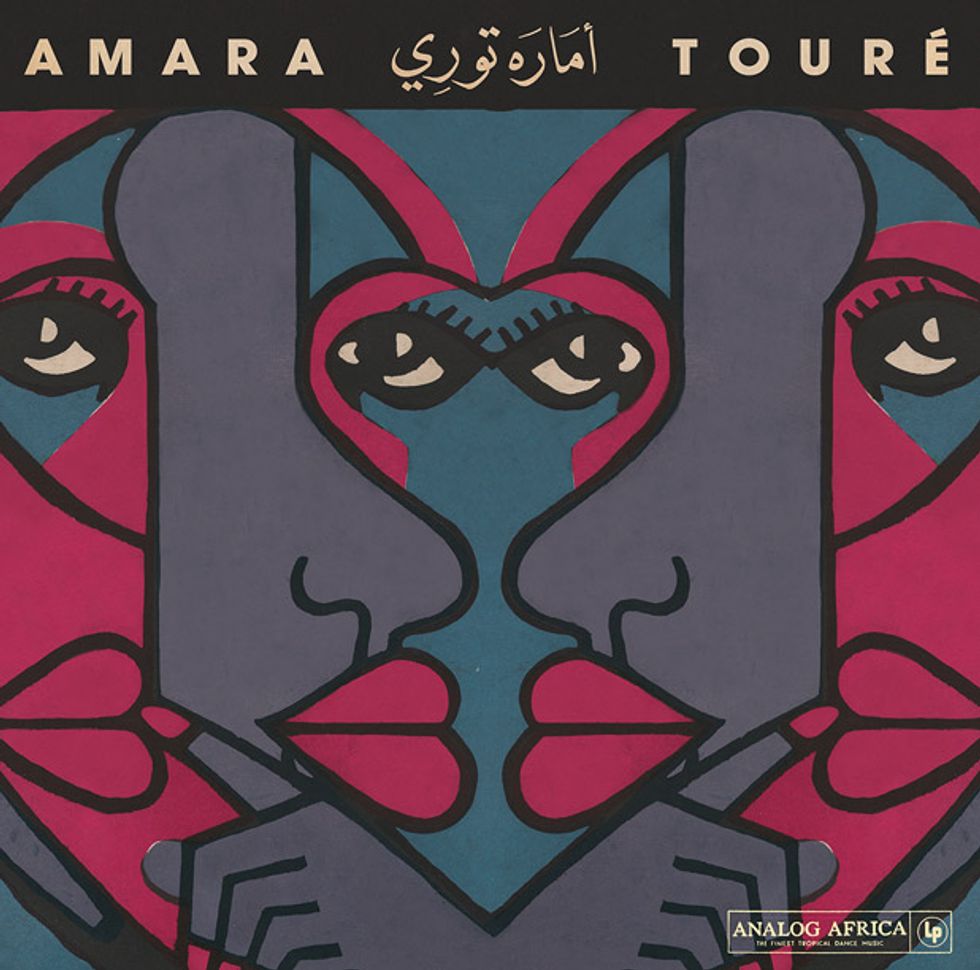Analog Africa Presents The Afro-Cuban Fusion Of Amara Touré
Analog Africa is set to release a retrospective LP showcasing the West African-Cuban inspired work of legendary Guinean musician Amara Touré.

Frankfurt-based label Analog Africa is set to release the Amara Touré: 1973-1980 anthology later this month, which will showcase the work of legendary Guinean singer and percussionist Amara Touré.
Touré's 30 year-long career began in the late 1950s in Dakar as part of the Senegalese collective known as Le Star Band de Dakar. Touré and the band enjoyed rapid success and became prominent figures in Senegal's booming, Cuban-influenced son montuno and pachanga scenes in the 60s. The singer-percussionist later went on to form his own band Black and White based out of Cameroon, where he further refined his unique take on Cuban music by fusing spirited, West African mandingue sounds with brass-filled Latin instrumentation — solidifying his status as a pioneer of Afro-Cuban music.
Much like fellow African musical luminary, William Onyeabor, Touré has been completely off the radar in recent years but his music remains influential. Analog Africa's Amara Touré: 1973-1980 compilation will present Touré's entire discography, consisting of just 10 tracks created throughout his extensive career. Pre-order Amara Touré:1973-1980 and listen to one of its featured tracks, "Lamento Cubano," below.


